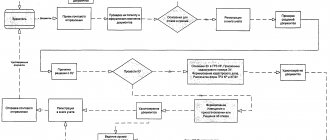If the land is public, it means that it belongs to municipalities and regional entities, regional and regional entities, and the Russian Federation. But the state itself does not have the right to dispose of land for its intended purpose. It receives material benefits by renting out properties on a commercial basis to individuals and businesses.
That is, the state owns the buildings. It is necessary to organize privatization so that property moves from state to private.
Dear readers! Our articles talk about typical ways to resolve legal issues, but each case is unique. If you want to find out how to solve your particular problem, please use the online consultant form on the right or call. It's fast and free!
What does this mean?
According to current legislation, the state is a special, completely autonomous entity, similar in structure to legal entities and individuals. Thanks to this legal status, the state plays the role of an independent subject under property rights.
The presence of special power functions is one of the main features of such entities. Because of this, they have the right to issue regulations regulating the procedure according to which the state itself exercises its rights to property.
Regulations must also respect the interests of the public. What types of forms of public ownership are there?
Main types of public ownership
Public property is divided into two types:
- Owned by the state.
- Owned by municipal facilities.
The following types of entities are distinguished in state public property:
- Individual subjects. These are regions, republics, and so on.
- All of the Russian Federation.
The municipality is built on the same model only as an owner. But this does not mean that municipal ownership can be completely attributed to state ownership. The formation of rights and objects in the public legal sphere does not occur in the same way as at the state level.
There are two types of public ownership.
If we talk about public territory in municipal-type entities, then the right of ownership may be with :
- Settlements with rural areas.
- Urban formations.
- Other entities with a similar status.
What documentation will be required?
The privatization procedure involves several component stages. This includes completing documentation with authorized bodies, as well as completing registration when applying to Rosreestr. It is envisaged that documentation can be submitted during a visit to the multifunctional center. Depending on what stage a person goes through, it is necessary to collect a certain list of documentation.
IMPORTANT !!! If a purchase and sale agreement is concluded, then you need to write an application for the transfer of rights to the plot; acts are also provided by which the identity of the citizens participating in the transaction is verified.
An act confirming the preliminary approval of the area where the site will be located is required. In addition, it is necessary to collect papers that indicate the legal use of the plot. For example, this is a rental agreement.
We need boundary acts and documents indicating the process of boundary approval. The citizen collects documentary evidence that there are grounds for receiving the plot. For example, this is an indication of the status of having many children, etc. If the land is leased, then acts confirming the absence of arrears in rent payments are provided. When an auction is held, you need to submit an application to participate in it.
About land plots as objects of public property
National treasures include any land for which the state has the right of ownership . If all requirements of current legislation are met. It belongs, as it were, to the whole people. Local entities own municipal lands .
If we are talking about common property, then there are certain restrictions and responsibilities associated with the disposal. Only acquisition or purchase is available for private land areas.
But if the objects belong to common property, any citizen may have ownership rights. Public types of property appear after such procedures as seizure, seizure of territory, confiscation, nationalization.
In what cases does a citizen have the right to legally use someone else's land? The answers are in this article.
The right of ownership can be terminated only after the publication of relevant acts and laws.
For citizens, public property may be available for rent.
Land objects of public property have other features:
- Public owners cannot use them on their own behalf. The plot is transferred to another user under conditions agreed upon in advance.
- Of the civil transactions on such lands, only rent is available. They cannot be used as collateral, mortgaged, or transferred to other entities.
- It is not necessary to use land only for its intended purpose.
Are you looking for ways to challenge the cadastral value of land? Detailed instructions at this link.
Disadvantages and advantages of public ownership
If someone rents an apartment owned by the state, they try to carry out privatization as soon as possible. But there is no need for such a procedure as such.
After all, even such housing has a number of advantages. Here is just a small list of them.
- Complete protection against fraudsters. Public housing cannot be easily transferred to the ownership of others. Therefore, the attackers themselves do not try to take possession of such objects.
- If the apartment is lost, then the person living in it is given another object to replace it. The state is obliged to provide other housing in the event of force majeure situations.
- Opportunity to improve living conditions. Everyone has the right to get another housing if the old one does not meet sanitary standards. But the disadvantage is that only living space with identical characteristics is provided.
- No mandatory tax on real estate ownership. Only the owners themselves pay a fee of 0.3-2 percent of the cadastral value of housing.
Among the main disadvantages is the inability to complete transactions such as sales, donations, and rentals. In addition, there is a risk of losing your property.
Public ownership imposes a number of restrictions on the owner.
Transfer to private ownership
The transfer of property rights from PPOs to citizens is carried out in accordance with the legislation of the Russian Federation, namely the Housing and Land Codes. Land and real estate are provided free of charge to:
- large families;
- citizens who use land on a leasehold basis;
- citizens who received an allotment for farming;
- lands of dacha and garden cooperatives;
- citizens who received a land plot for construction.
Documentation
To register land as private property, a citizen must provide and collect the following package of documents:
- application for the provision of land;
- a copy of the passport and its original;
- act on the territorial location of the allotment;
- boundary plan;
- evidence that the land is being used legally;
- documents that confirm that the citizen has the right to apply for a plot of land as private property;
- receipt for payment of state duty;
- application for participation in the auction and protocol from its conduct;
- other.
Features of the public legal regime
In this case it is special. This concerns methods of disposing of objects and issues related to assigning specific owners.
According to the new legislation, all public lands can be divided into two categories.
- Undelimited, subjectless public property.
- Property of a specific public owner.
If we talk about the second category, then state registration of property rights is required for delimitation. This is mandatory for every site that is not privately owned.
But such a procedure is not particularly difficult - it is enough for the application to be submitted by the executive bodies of state power or a local government body. Persons acting on behalf of these bodies have this right.
Cartographic works, their types and costs - read the details at the link.
About municipal property
As already mentioned, this group includes plots belonging to rural or urban settlements. Local governments act on behalf of municipalities when they exercise property rights.
That is, these bodies become subjects of municipal type property.
Ownership of land arises immediately after state registration is completed.
Municipal entities can receive free of charge land , ownership rights to which belong to the state. Only in Moscow and St. Petersburg such objects are not allocated to municipal ownership.
At the same time, municipal property rights can arise even in relation to objects that were abandoned by the previous owners. To whom can such objects be transferred?
- Unitary enterprises.
- Municipal institutions.
- Representatives of local authorities, or non-profit organizations created by such authorities.
- Legal entities.
- Citizens.
By granting rights over public property to a private entity, the state pursues the goal of delegating the management of this property to another person in exchange for a guaranteed income in the form of, for example, rent. Taking into account the need to prevent corruption, the rules governing the provision of real estate to private individuals are of particular importance. For land relations, such a normative legal act is the Land Code of the Russian Federation (hereinafter also referred to as the Land Code of the Russian Federation), which is currently at the stage of significant reform. On March 1, 2015, the Federal Law of June 23, 2014 N 171-FZ “On Amendments to the Land Code of the Russian Federation and Certain Legislative Acts of the Russian Federation” (hereinafter referred to as Law N 171-FZ) comes into force in full, which significantly changes the rules for the provision of land plots. This Law was a response to criticism of the RF Land Code by both representatives of academic science and business.
Let us recall that currently the Land Code of the Russian Federation provides for three procedures for the provision of land plots: - at auction; — without bidding with preliminary approval of the location of the object; - no bidding. In accordance with Article 30 of the Land Code of the Russian Federation, an interested person can obtain a land plot as ownership or lease at auction. Land plots are provided exclusively for rent with prior approval of the location of the facility. In this case, competitive procedures are not carried out. At the same time, several situations are legally established when the provision of land plots with preliminary approval of the location of the object is not allowed: 1) if the land plot has already undergone cadastral registration, which excludes the possibility of carrying out the procedure for selecting a land plot according to the rules provided for in Article 31 of the Land Code of the Russian Federation; 2) if land use and development rules have been approved in relation to the territory of a settlement or part of it (clause 11 of Article 30 of the Land Code of the Russian Federation); 3) for housing construction, except for cases provided for by law (clause 2 of article 30.1 of the Land Code of the Russian Federation). The range of such exceptions is very limited. At the same time, for the construction of commercial real estate, a land plot can be provided without holding a tender, despite the fact that this area of development is often as competitive and profitable as residential construction. The non-transparent procedure for preliminary approval of the location of an object does not always allow the sale of a land plot on the most favorable terms for the public owner and does not ensure equal access for private individuals to land resources. Now, amendments to the Land Code of the Russian Federation provide for an exhaustive list of cases when a land plot can be provided without holding a tender. Thus, Law N 171-FZ includes Article 39.3 in the Land Code of the Russian Federation, which provides for ten cases when the sale of a land plot is carried out without holding a competition, and Article 39.6 of the Land Code of the Russian Federation, as amended, establishes thirty-two grounds for the provision of a land plot for lease without holding a tender. Among the advantages of the new provisions of land legislation is the fact that the Land Code of the Russian Federation, as a codified act, systematized all cases of non-competitive provision of land plots and eliminated a number of contradictions that exist today in the legislation. For example, the amendments resolved the issue of “double trading”. This problem lies in the fact that in some cases the legislation provides for the holding of tenders for the right to carry out economic activities that involve land use. At the same time, the terms of the auction do not provide for the conclusion of a purchase and sale or lease agreement for a land plot with the winner. Due to the principle of payment for land use, a person who extracts the useful properties of public land is obliged to pay rent or land tax. Consequently, the person who wins the auction is obliged to conclude a lease agreement with the public owner or purchase the land plot in accordance with the general rules of the Land Code of the Russian Federation. A paradoxical situation arises: a person who has received the right to carry out activities on a land plot may lose the bidding for the acquisition of rights to a land plot. In particular, Law N 171-FZ includes in the list of grounds for the provision of land plots without bidding the provision of a land plot necessary for carrying out the activities provided for in the concession agreement to the person with whom the concession agreement was concluded (Clause 23 of Article 39.6 of the Land Code of the Russian Federation as amended ). This rule eliminates the uncertainty regarding the validity of granting land under a concession without bidding, which has existed since the entry into force of Federal Law No. 115-FZ of July 21, 2005 “On Concession Agreements.” This decision can only be welcomed, since the concession agreement is the only form of public-private partnership enshrined in federal legislation, which is becoming increasingly important in the Russian economy. Projects with a significant amount of investment are being implemented on the basis of concession agreements, so there should be no uncertainty in such an important issue as land rights. The legislator has also resolved the problem of “double bidding” when concluding a hunting agreement. Now a person who has received the right to carry out activities in the field of hunting on the basis of an appropriate agreement has the right to be provided with a land plot for rent without bidding (Clause 24 of Article 39.6 of the Land Code of the Russian Federation as amended). In addition, according to the amendments introduced by Law No. 171-FZ, land plots can be provided to legal entities by order of the Government of the Russian Federation or the highest official of a constituent entity of the Russian Federation for the placement of socio-cultural facilities, the implementation of large-scale investment projects, provided that these facilities comply with investment projects to the criteria established by the Government of the Russian Federation or the law of the constituent entity of the Russian Federation, respectively. These provisions exclude the need to hold tenders for the right to conclude a lease agreement for a land plot for the construction of preschool, educational institutions, etc. It is obvious that in most situations, the construction of such facilities is the implementation by the state of a social function, and for the acquirer of such a right it is a matter of social responsibility of the business, which makes the use of competitive procedures unjustified. Now this practice takes place, since land legislation often does not make it possible to implement such a project without holding a tender. Reducing the time and financial costs associated with holding auctions should have a beneficial effect on providing residents of populated areas with social and cultural facilities. The most significant innovation of Law N 171-FZ is the rules on the targeted provision of land plots for the implementation of large-scale investment projects. Despite the fact that under the current version of the Land Code of the Russian Federation at the regional level there were precedents for the establishment of similar rules, this raised questions. For example, the Law of St. Petersburg dated June 17, 2004 N 282-43 “On the procedure for providing real estate objects owned by St. Petersburg for construction and reconstruction” provided that a land plot can be leased without bidding to “strategic investors” . Subsequently, by a decision of the arbitration court, the relevant norms were declared invalid as contrary to the Land Code of the Russian Federation and the legislation on the protection of competition <1>. In principle, the consolidation of such rules at the federal level can be supported, since, indeed, projects that are of significant importance for the Russian Federation or a constituent entity of the Russian Federation should be implemented by legal entities that have the appropriate reputation, experience and capabilities. In the practice of competitive distribution of public land, there are often cases when the auction is won by a company created a short period of time before such a competition, which does not have any experience in implementing similar projects. Bidding guarantees the public owner the maximum profit from concluding an agreement with a specific counterparty, but not the timely completion of the project. Despite the fact that the main benefit from the construction is received by the developer, the constructed facility will become an element of a comfortable urban environment created in accordance with the approved documents of territorial planning and urban zoning. Now federal legislation will ensure not only the profitability, but also the effectiveness of the use of public land. In addition, the rules on the targeted provision of land plots for the implementation of large-scale investment projects will contribute to the development of public-private partnerships at the regional level. Currently, there is no Federal Law on Public-Private Partnerships, however, corresponding laws have been adopted in many constituent entities of the Russian Federation. Typically, such laws provide for rules on the provision of land plots to a private partner for lease without holding a competition. Despite the obvious expediency of such rules, their legality, taking into account the current provisions of the Land Code of the Russian Federation, is questionable. The innovation under consideration will allow regions to implement public-private partnership projects without the risk of violating land legislation or exceeding authority in this area. At the same time, the real effect of the amendments can only be assessed after the Government of the Russian Federation adopts the criteria for large-scale investment projects at the federal level and approves similar criteria at the regional level. If only really important projects that can be implemented only by some participants in the real estate market fall into the scope of targeted provision of land plots, the introduction of new rules can only be supported, however, in highly competitive areas, the rules on the provision of plots at auction should be preserved in order to obtain maximum budget income for a public entity . In paragraph 2 of Article 39.11 of the Land Code of the Russian Federation, as amended, the legislator gave a negative answer to the question about the possibility of combining several land plots into one auction lot. Previously, there was no clear regulation on this issue. The courts considering the relevant disputes came to opposite conclusions. Thus, in the Resolution of the Federal Arbitration Court of the North-Western District dated February 20, 2012 in case No. A56-18722/2011, it was concluded that the combination of several plots into one lot violates Articles 15 and 17 of the Federal Law “On the Protection of Competition”. The Federal Arbitration Court of the Ural District came to similar conclusions <3>. However, according to the Federal Arbitration Court of the Central District, such actions comply with land legislation and competition protection legislation <4>. The Federal Arbitration Court of the Northwestern District took the same position in 2011 <5>. Now the law directly prohibits the combination of several plots into one auction lot. At the same time, the negative effect of such regulation is insignificant, since several land plots are usually required to implement large-scale construction projects. Now such projects should fall within the scope of targeted provision of land plots, which will allow the public owner to provide the necessary plots to a private individual. In those cases where a project is being implemented that does not fall under the large-scale criterion, a ban on combining several sites will have a beneficial effect on competition in the investment and construction sector.
Territory planning
Moving from the issues of providing land plots to the issues of their use, one cannot fail to note the problem of preparation of urban planning documentation by the public authorities. Urban planning documentation, which includes documents of territorial planning, urban zoning and territory planning, is designed to ensure the creation of a comfortable environment for living, recreation, etc. Among the principles of the Urban Planning Code of the Russian Federation (hereinafter referred to as the RF GRK) the following are named: 1) ensuring sustainable development of territories based on territorial planning and urban zoning; 2) implementation of construction on the basis of territorial planning documents, land use and development rules and documentation on territory planning (Article 2 of the Civil Code of the Russian Federation). Sustainable development of territories in the understanding of the Town Planning Code of the Russian Federation is ensuring, when carrying out town planning activities, safety and favorable conditions for human life, limiting the negative impact of economic and other activities on the environment and ensuring the protection and rational use of natural resources in the interests of present and future generations (subclause 3 Article 1 Civil Code of the Russian Federation). By adopting the relevant urban planning documents, public entities guarantee the sustainable development of the relevant territory and fully determine the legal regime of land plots that can be provided and developed. Given that the vast majority of undeveloped land within populated areas is usually publicly owned, such regulation is essential. Understanding the importance of developing land use and development rules, the federal legislator actually introduced sanctions for those municipalities that do not develop urban zoning documents. In accordance with paragraph 3 of Article 51 of the Civil Code of the Russian Federation, in the absence of land use and development rules, the issuance of construction permits is prohibited, except in cases provided for by law. The approval of land use and development rules in municipal areas should have been completed before June 30, 2013, in urban settlements and urban districts - by December 31, 2013, in rural settlements - by June 1, 2014. Thus, a public entity loses the opportunity to receive income from such a plot of land under an agreement on its provision for construction. In addition, the inability to determine the type of permitted use in such a situation deprives the public owner of the opportunity to independently carry out construction in accordance with the law. This hinders the implementation of territorial planning documents, government programs and, ultimately, the creation of a comfortable urban environment. Decree of the Government of the Russian Federation dated July 29, 2013 N 1336-r approved the “road map” “Improving the legal regulation of urban planning activities and improving the business climate in the construction sector,” which established clear deadlines for the approval of draft land use and development rules. However, urban zoning documents have not yet been developed everywhere. In this regard, the wider application of sanctions provided for local government bodies and their officials by Federal Law of October 6, 2003 N 131-FZ “On the General Principles of the Organization of Local Self-Government of the Russian Federation” is relevant. The actual application of such measures will create incentives for municipal authorities to implement regulations in the field of public property management.
Investment allocations for infrastructure
A serious problem in the management of a public land fund is the issue of establishing investment obligations for a person who has acquired rights to a land plot for the purpose of capital construction or reconstruction. Thus, a subject of the Russian Federation or a municipality often requires the developer to make a contribution to the development of infrastructure or other investment payment or to fulfill in kind a certain generally beneficial obligation (for example, the construction of a preschool building or utility networks with their subsequent free transfer to public ownership) as a condition for issuing initial permitting documentation for construction. Despite the fiscal nature of such payments <7>, there is no regulation at the federal level. Subjects of the Russian Federation, at their own discretion, regulate relevant relations, which creates unequal conditions for access to construction in different subjects and municipalities. Due to the lack of uniform rules, the interests of developers suffer, who, in turn, shift payments to buyers of constructed real estate. Currently, the position of the Supreme Arbitration Court of the Russian Federation on the legal nature of such payments is that they are of a civil nature <8>. That is, based on Article 421 of the Civil Code of the Russian Federation, the public owner is free to include them in the lease agreement or investment agreement with the developer. This solution is not successful, since it does not comply with the provisions of the Tax Code of the Russian Federation and does not encourage the legislator to regulate this payment in the manner established for fiscal duties. The lack of uniform and transparent rules for establishing investment obligations and protecting private investors when providing land for construction has a significant negative impact on the possibility of implementing construction projects on public land. At the same time, the majority of land plots are publicly owned, and most public entities simply do not have the means and opportunities for independent implementation, for example, of housing construction.
Auctions
The auction can be initiated either by the future owner or by the state. The rules by which tenders are structured if they were initiated by the municipality:
- he organizes surveying with the definition of boundaries;
- it notifies potential bidders about upcoming auctions through the media and its official website.
If the initiator is a private person, his responsibilities include:
- submitting an application or request for the sale of the desired plot, justifying your goals;
- land surveying of this area;
- presence at auctions, participation in them.











